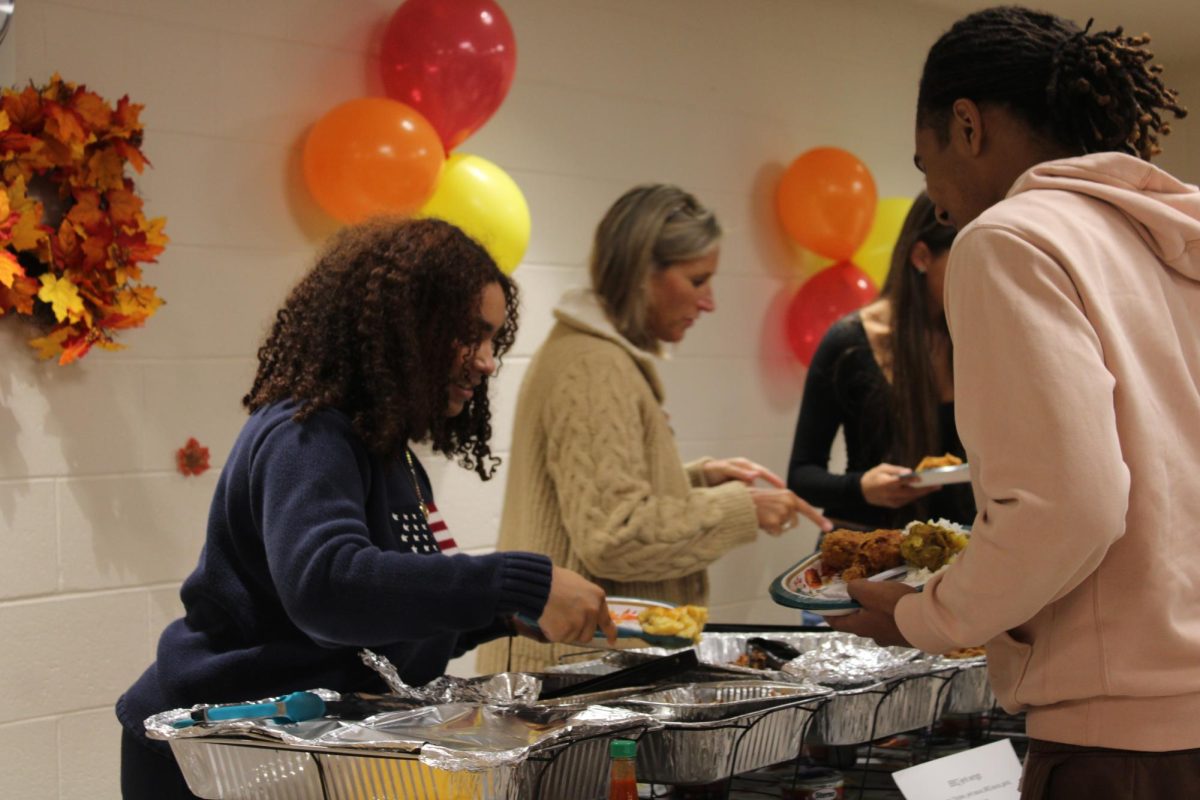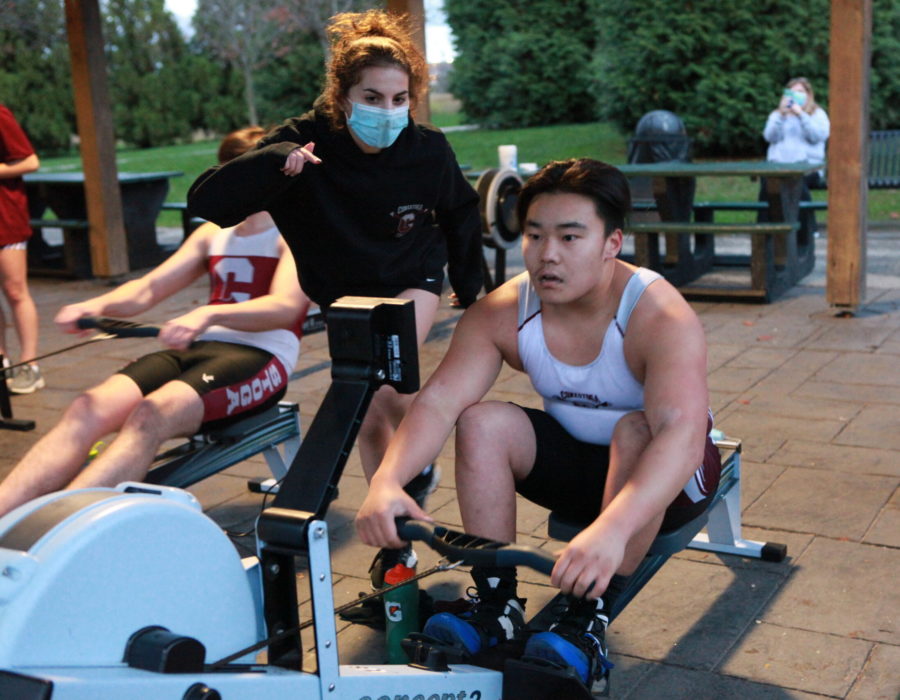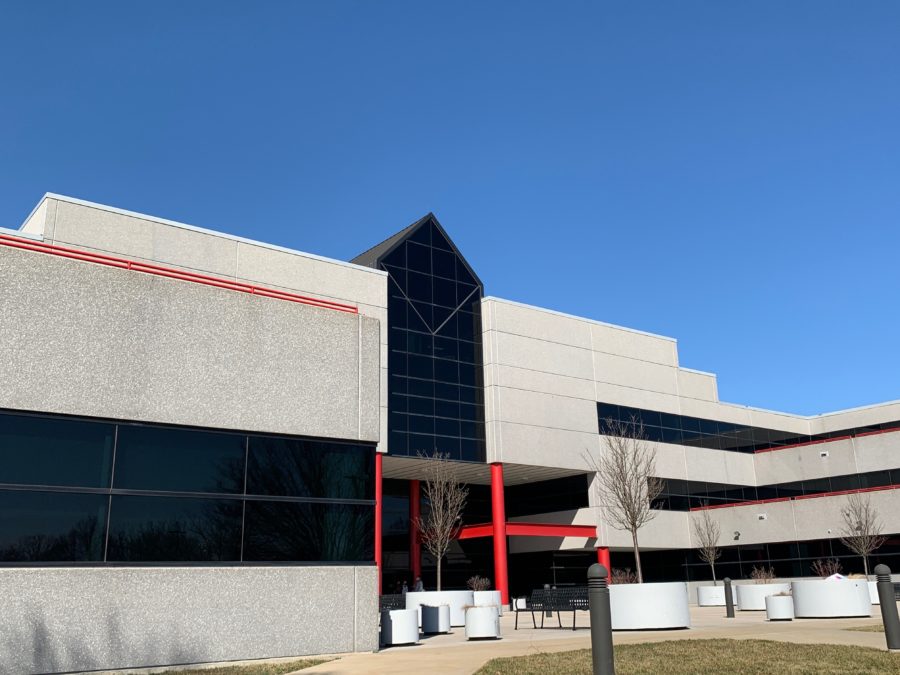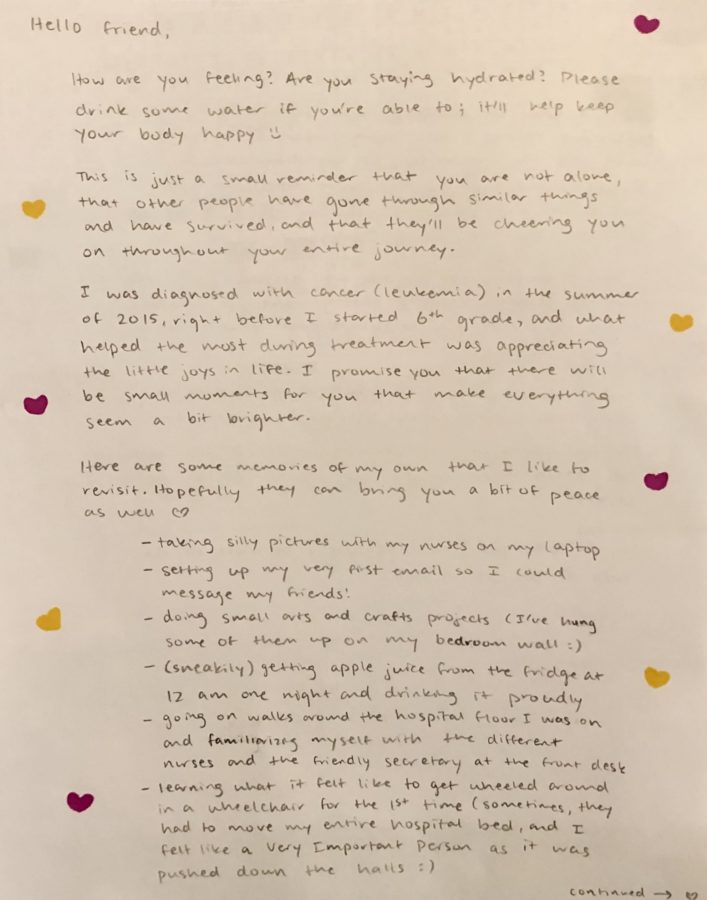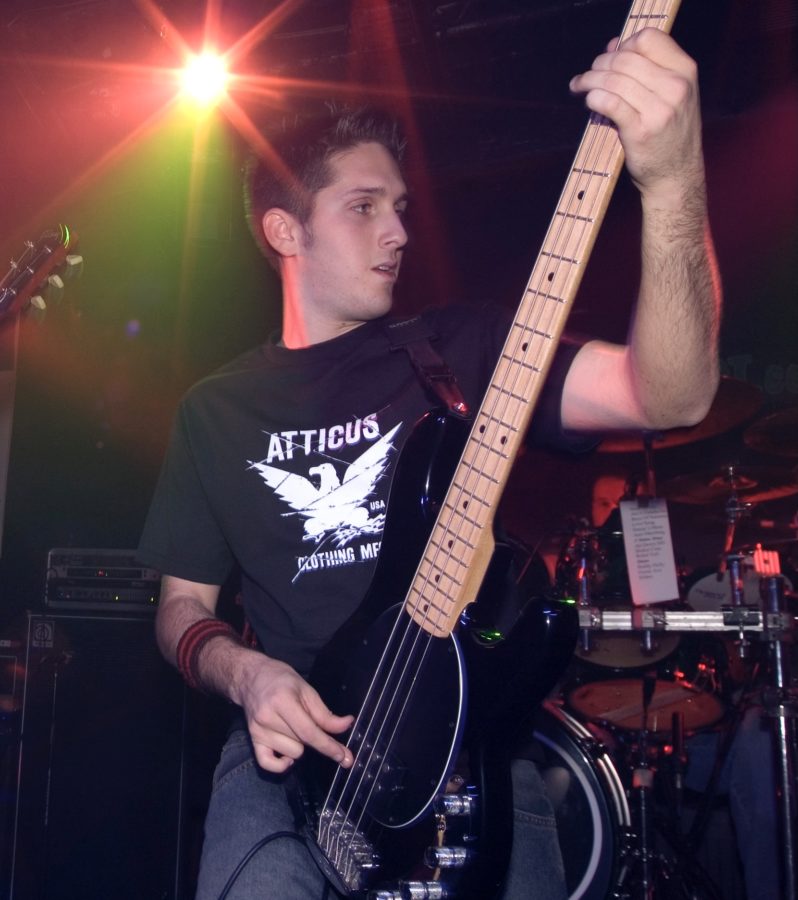By Evan Lu, Webmaster
Rowers decked out in garnet and grey calmly take their seats, exchange words of encouragement and make final preparations before the time trial as energetic music blasts from a portable speaker nearby. But instead of floating on a broad, blue river, the members of the Conestoga crew team lookout upon a field of green grass from a concrete pavilion.
Due to the COVID-19 pandemic and an ongoing dredging project to excavate mud from the bed of the Schuylkill River, the crew team has experienced major changes to the way it conducts practices and regattas. In the past, the team practiced five to six days a week on the Schuylkill River throughout the fall, winter and spring seasons as long as the weather allowed. However, dredging forced the team to relocate practices to Wilson Farm Park. Instead of rowing on the water, the team uses rowing machines, or ergs, and has incorporated more variety into their training program through running, core exercises, and yoga. Goldia Kiteck, head coach of the crew team, is somewhat disappointed with the new practice format.
“We’d always like to be on the water. If it wasn’t for the river being dredged, even with the cold we would be on the water,” Kiteck said.
The team also implemented safety guidelines for practices, including face masks, social distancing and disinfecting ergs in between people. Carpools are limited and rowers are encouraged to be careful and limit interaction with those outside the team.
“Anytime we think someone might be too close (to someone else), we just tell them to space out. There’s no repercussions, there’s no pushback, and everybody has a pretty good understanding of the safety guidelines,” said senior Kevin Connell, boys’ captain.
Regattas are also drastically different. Traditionally held in-person, regattas pitted teams against each other in races to an actual finish line. Race formats varied, with individual, duo, and quad categories. Parents, friends, supporters, and fellow team members watched from a big white tent on the riverbank, cheering on the competitors. Senior and girls’ captain Savanna Jacovini relished the interactions with spectators that came with competing.
“My personal favorite memory was always the sprints of the races. Once you hit 500 meters left, which is the last quarter of the race, that’s when you start going by all the tents and you start hearing all the screaming from the sidelines,” Jacovini said. “The entire boat shifts up in energy together, goes completely all out and by the time you cross the finish line, you’re completely gassed. All the energy is out of your body, but you know you did it as a team and you worked together.”
Now, regattas are held virtually and races are individual. Rowers race on ergs and compare their times with competitors. The white tents filled with onlookers are reduced to a few parents, coaches and fellow teammates. With fewer spectators, sophomore Sam Wang feels less motivated when competing.
“What normally happens is you’d have people screaming at you from the sidelines. There’d be people in your own boat yelling ‘Let’s go faster, let’s bring up this rate,’” Wang said. “But because of (the new format), it’s mostly just your teammates yelling at you so it’s kind of hard for you to get into that racing mind, but we make do with what we have.”
Nevertheless, the team realized multiple positives from the altered circumstances. Athletes are healthier and stronger, making them less prone to injury. The imperfect situation also fostered increased resilience, adaptability, and team unity.
“A lot of times, athletes talk about their time in sports and they don’t remember the competitions. They remember the hard times, where you’re all working together, trying to accomplish something. It’s the same thing here. Because everyone’s working together to make the best out of something, it’s bringing the team closer together,” Kiteck said.
While the future remains uncertain without a concrete end in sight with the dredging project, Conestoga crew still looks forward optimistically. They are excited to get back to the water as soon as possible and are looking forward to the resumption of normalized competition.
“We adapted, and we’re making the best of it. When there’s a global pandemic, it teaches you to appreciate the little things,” Kiteck said. “But we’ll be ready for when we get in the water again.”






